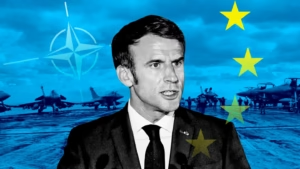
Donald Trump Bitcoin investment speculation has surged in recent years as the former president’s stance on cryptocurrency has undergone a dramatic transformation. Initially, Trump was a vocal critic, dismissing Bitcoin as “not real money” and warning about its volatility. However, by 2024, his attitude shifted significantly. From public endorsements to discussions about policy changes, Trump has embraced the cryptocurrency revolution in ways that suggest both political strategy and personal investment.
The big question remains: Is Donald Trump Bitcoin investment a reality, or is his advocacy simply a calculated move to position himself as a leader in the digital economy? Let’s delve deeper into how his actions are reshaping perceptions of Bitcoin and influencing the cryptocurrency market.
Donald Trump’s Early Doubts About Bitcoin

In 2019, while serving as President of the United States, Donald Trump was far from an advocate for Bitcoin or other cryptocurrencies. His public criticisms of digital currencies were both blunt and definitive, aligning with the broader skepticism of traditional policymakers at the time. Trump tweeted, “I am not a fan of Bitcoin and other Cryptocurrencies, which are not money, and whose value is highly volatile and based on thin air.” He went on to highlight concerns about their potential use in illegal activities, such as drug trafficking and money laundering.
Trump’s stance resonated with global regulatory sentiments, as many governments were still grappling with how to approach the rise of decentralized financial systems. To him, cryptocurrencies represented chaos rather than opportunity, threatening the stability of traditional markets and the primacy of the U.S. dollar. These concerns painted Trump as a firm opponent of Bitcoin, reflecting a worldview deeply rooted in traditional financial paradigms. But what makes this skepticism even more noteworthy is the dramatic shift that would follow in the years ahead.
Donald Trump’s Bitcoin Transformation: From Skepticism to Investment Strategy

By 2024, the world had witnessed a seismic shift not only in the adoption of cryptocurrencies but also in Donald Trump’s attitude toward them. In a move that surprised many, Trump pivoted from vocal Bitcoin critic to one of its most visible proponents on the global stage. This transformation became particularly evident during his 2024 presidential campaign, where he actively sought to engage the growing cryptocurrency community.
Trump’s appearances at prominent Bitcoin events were nothing short of groundbreaking. In his keynote address at the Bitcoin 2024 Conference in Nashville, he unveiled an ambitious proposal: the creation of a national Bitcoin stockpile.Trump argued that Bitcoin, as a decentralized and finite resource, could serve as a strategic financial asset for the United States. By incorporating Bitcoin into the national financial system, he envisioned a future where the U.S. could cement its leadership in the digital economy.
This newfound support wasn’t just about speeches and proposals; it extended to his campaign’s messaging and policy outlines. Trump began framing Bitcoin as not just a technological innovation but a patriotic tool for maintaining America’s global dominance. His transformation signaled a broader acceptance of cryptocurrencies, reflecting both the maturation of the crypto industry and its undeniable influence on global finance.
However, critics questioned the sincerity of this shift, suggesting it could be a calculated political move to garner support from the crypto-savvy younger demographic. Despite the skepticism, Trump’s pivot toward Bitcoin was undeniably impactful, driving headlines and sparking renewed interest in the cryptocurrency among investors and policymakers alike.
The Launch of World Liberty Financial

Capitalizing on the momentum, Trump announced the launch of World Liberty Financial (WLFI), a cryptocurrency platform aimed at revolutionizing the financial industry. The venture, involving his sons, seeks to position the United States as a global leader in the crypto space. Despite initial fundraising challenges, WLFI eventually reached its revised goal, attracting significant investments, including a $30 million injection from crypto entrepreneur Justin Sun.
Speculations About Personal Investments
While Trump’s public endorsements of Bitcoin are evident, questions linger regarding his personal investments in cryptocurrencies. Financial disclosures reveal that Trump holds over $1 million in Ethereum, the blockchain platform that supports various digital assets and decentralized applications. This substantial holding has led to speculation about whether Trump has diversified his crypto portfolio to include Bitcoin and other digital assets.
Implications for the Crypto Market
Trump’s embrace of cryptocurrencies has had a palpable impact on the market. Following his election victory in November 2024, Bitcoin’s price surged to record highs, surpassing $90,000. Investors interpreted his pro-crypto stance as a harbinger of favorable regulatory policies, fueling optimism and increased investment in digital assets.

Critics and Concerns
Despite the enthusiasm, critics caution against the potential risks associated with rapid crypto adoption. Economists warn that the lack of regulatory oversight could lead to market volatility and financial instability. Additionally, concerns have been raised about potential conflicts of interest, given Trump’s direct involvement in crypto ventures while influencing national policy.
Conclusion
Donald Trump’s journey from a crypto skeptic to a prominent advocate underscores the evolving landscape of digital currencies. His public endorsements and business ventures have undeniably influenced the crypto market, sparking both enthusiasm and debate. While concrete evidence of personal investments in Bitcoin remains speculative, Trump’s engagement with the crypto industry continues to shape its trajectory, leaving the world watching closely as this financial frontier unfolds.



